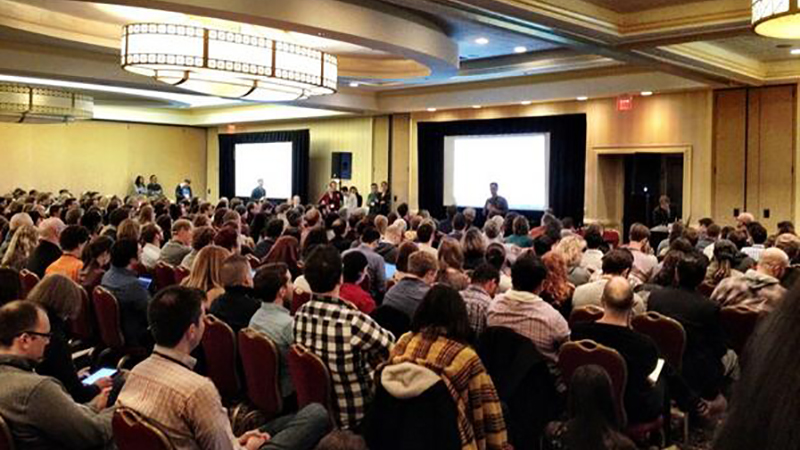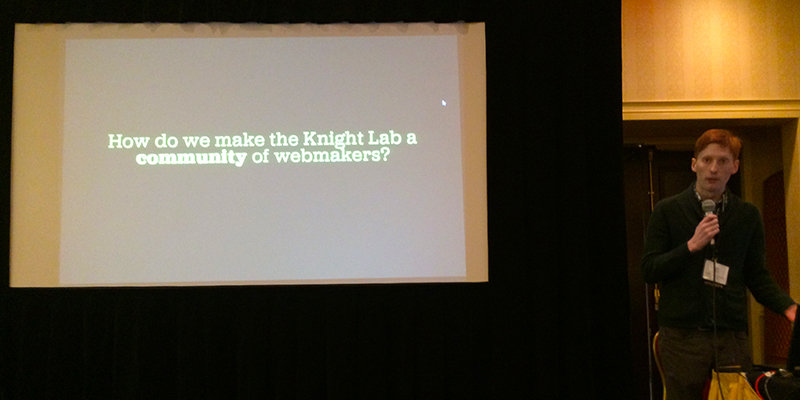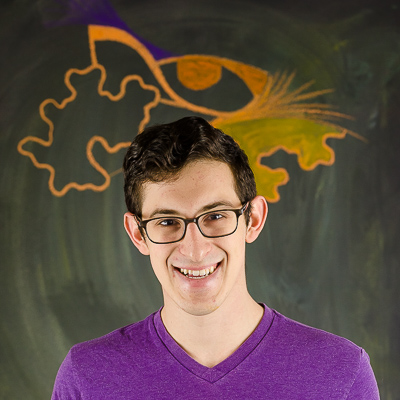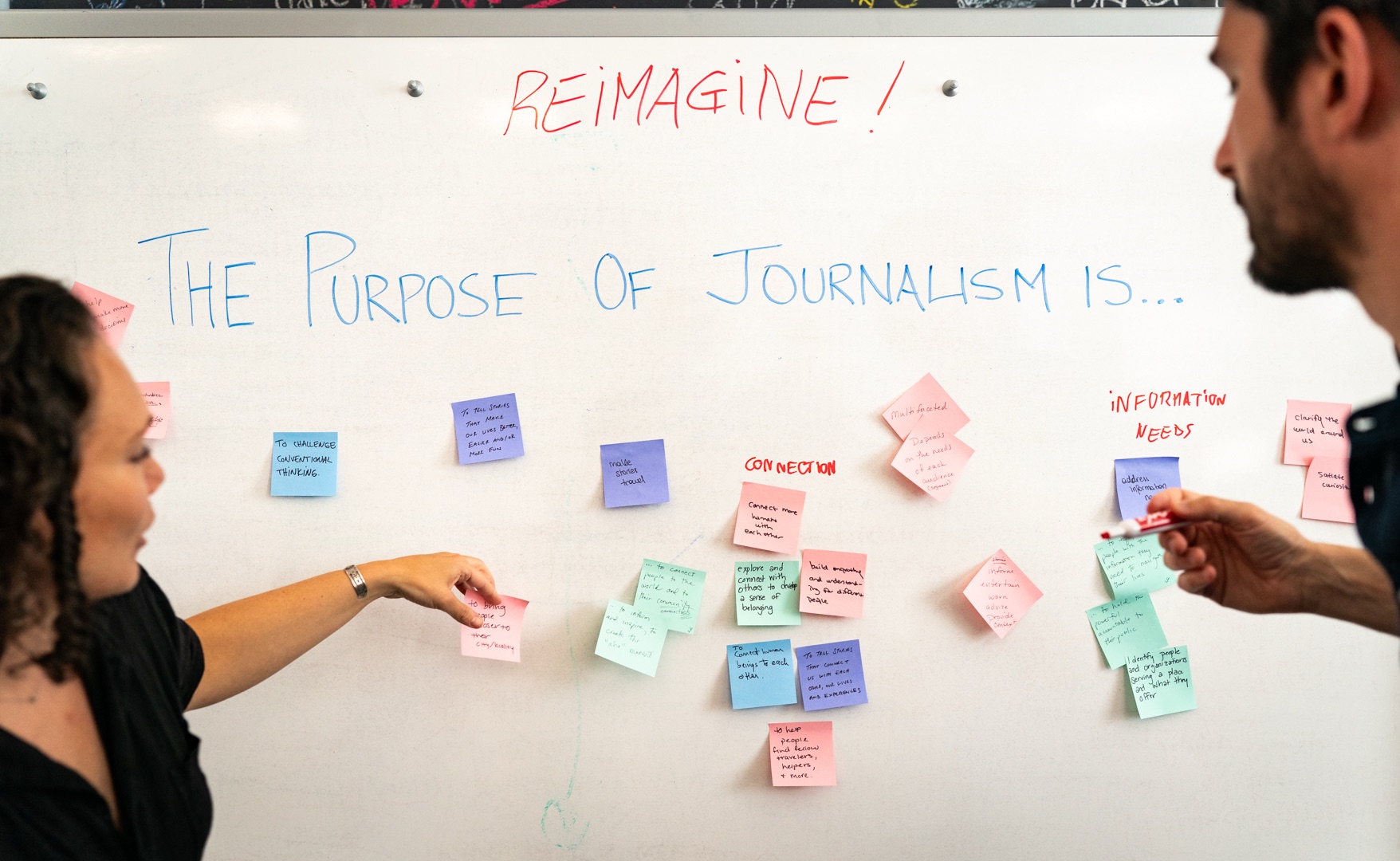
The first NICAR lightning talks were in a small conference room, maybe 40 people showed, 10 were speakers. Now? pic.twitter.com/XJBFAAyzZx
— Matt Waite (@mattwaite) February 28, 20141. Refactoring; or Why Your Code Sucks and How to Fix It
Christopher Groskopf, a developer at NPR, started off the Lightning Talks explaining the importance of refactoring your code. By improving the quality of code without adding more features you can make it more readable and efficient. Following "code smells" like duplicated code, long functions (like longcat), and inconsistent style helps build better habits the next time you code.
2. A Few of My Favorite Wee Things
A shot from @cunyjschool Prof. @lenagroeger's excellent lightning talk @IRE_NICAR on her Favorite Wee Things #nicar14 pic.twitter.com/0Awm3pPLNV
— Heather Martino (@HeatherSaidTHAT) March 7, 2014Lena Groeger, a news apps developer at ProPublica, then shared a few of her "favorite wee things," small visualizations that are easy to create but convey lots of meaning. Small multiples of images show variations over time and small text makes differences stand out. Mini maps provide context as a reader scrolls through a story. Icons are useful way to add information inline with the text. Groeger referenced The Noun Project and StateFace as tools to consider for finding these small images.
3. Natural Language Processing in the kitchen
Anthony Pesce, a journalist at The LA Times, explained how he used Natural Language Processing (NLP) to turn the paper's recipe archive into a structured database. Using the Python library *nltk* he was able to train the program to classify words and phrases as either ingredients, steps, or instructions.
4. Five (more) algorithms in five (more) minutes
In another more computer science heavy talk, Chase Davis, explained five algorithms and computer science concepts in five minutes. Explanations and demos of how to use vectorization, naïve-bayes classifiers, iterative algorithms, vantage point trees, and latent dirochlet allocation are all available on GitHub. Watch the video.
5. What we can learn from terrible data viz
Medill School alumna, and former contributor to Knight Lab projects, Katie Park talked about learning from bad data visualizations. In between laughing at some really hilarious examples, Park cautioned against always using charts, stressed being consistent with scale and color, and emphasized double and triple checking your data. Watch the video.
6. Practical Calculus
Steven Rich talked made an argument that math can find an investigator or journalists answers that can't be found by any other way. Rich talked about how he used calculus to fact check the government's estimate of how much toxic chemicals had spilled into the Elk River in West Virginia. Rich concluded by emphasizing that journalists can and should use math.
7. Detecting What Isn’t There
Sisi Wei, a Medill School alumna and developer at ProPublica, talked about how ProPublica reverse engineered the Sina Weibo API to discover what posts were being censored. She explained the challenges and pitfalls that are important to consider when trying to be discrete with your online investigations.
8. The whole Internet in 5 minutes!
In the fastest talk of the hour Jeremy Bowers, another developer at NPR, gave his in, well, the five minute limit. Speaking at around 350 words a minute (you can read the full transcript), Bower's talk was definitely entertaining and mildly informative about the technical infrastructure that powers the Internet. GitHub repo | Video
9. How to Raise an Army

10. You Must Learn
Here we go... @palewire #nicar14 lightning talk... pic.twitter.com/Th4GnOo9t8
— Eric Zassenhaus (@ezass) February 28, 2014Ben Welsh was granted the rest of the available time for his talk about how, in some sense, using data and computers for reporting is nothing new. Journalism developers should instead be proud of their history and work to make data journalism even better. He emphasized the importance of understanding the history of the craft in order to more effectively invent journalism's future. Watch the video.
Each talk was informative and entertaining and provided a great break from the more traditional (but still fantastic) sessions at the conference.
Every year New York Times' Chrys Wu curates 'Slides, Links & Tutorials' from the annual CAR conference: 2014, 2013, 2012 and 2011. They are a fantastic resource for all journalists and investigators of all skill levels.
About the author





